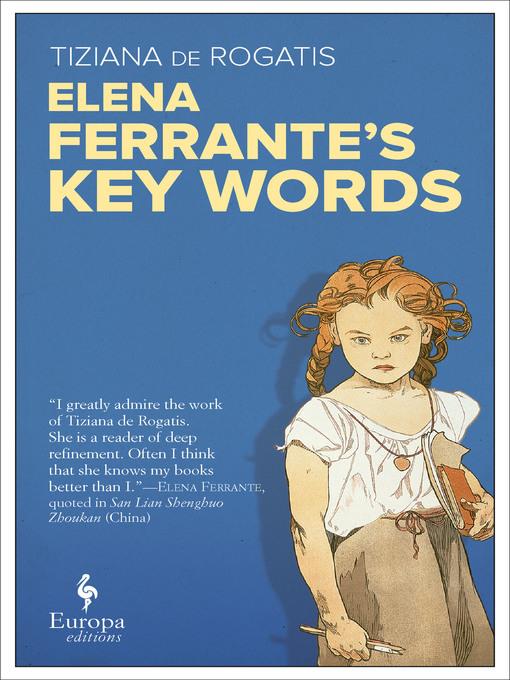
Elena Ferrante's Key Words
- اطلاعات
- نقد و بررسی
- دیدگاه کاربران
نقد و بررسی

December 1, 2019
An Italian scholar tackles novelist Elena Ferrante's Neapolitan quartet in terms of their "creative forms of [female] resistance." Ferrante has managed to keep her true identity secret since she published her first novel in 1992; she has consistently refused to be defined by the patriarchy in Italy, "where male journalists, publishers, and professors consistently undermine women writers and their visibility." De Rogatis (Comparative Literature/Univ. for Foreigners of Siena) offers a close reading of the themes, style, and language of the quartet of novels about the dovetailing lives of two girls coming-of-age in 1950s-through-1970s Naples, Elena and Lila: My Brilliant Friend (2012), The Story of a New Name (2013), Those Who Leave and Those Who Stay (2014), and The Story of the Lost Child (2015). De Rogatis meticulously explores the arc of the narrative as the two poor friends struggle to go to school despite the narrowed expectations of female lives at the time, and certainly within the neighborhood in Naples where they live, and both have to navigate overweening male relationships, marriage, children, and the struggle for self-emancipation. Ferrante, argues de Rogatis, writes with an eye to the "high and low," with enough twists in plot and engaging characters to keep readers hooked, "drawing on subgenres, like thrillers, serial novels...even photo romances--that is to say, marginalized genres." Among the "key words" de Rogatis explores are the complicated "friendship" between the girls, entailing both projection and envy; "smarginatura," a term Ferrante uses to mean "spilling through the established boundaries of conventional reality"; and frantumaglia, a word Ferrante's mother invented (according to de Rogatis) meaning "how she felt when she was racked by contradictory sensations." Throughout, the author emphasizes the global relevance of Ferrante's feminist work in light of #MeToo narratives of "erasure and survival." A richly layered study that will appeal to the well-versed fan.
COPYRIGHT(2019) Kirkus Reviews, ALL RIGHTS RESERVED.

Starred review from February 1, 2020
Since the release of 2012's My Brilliant Friend, the first in Elena Ferrante's sensational "Neapolitan Quartet," millions of readers worldwide have gravitated to her stories, whose universal themes of "survival, alienation and inclusion, female difference and national identity" continue to resonate today. Drawing on Ferrante's earlier novels, Troubling Love (1992), The Days of Abandonment (2002), and The Lost Daughter (2006) in context of the Quartet and the friendship between young Elena and Lila, who come of age in working-class, postwar Naples, de Rogatis (comparative literature, Univ. of Foreigners of Siena) presents close readings of these stories that "speak to the margins" to uncover "a new form of female identity," revealing through the plights of Ferrante's characters, and their creative partnerships, how their differing points of view somehow "never become locked within a formula that makes one the opposite of the other." VERDICT An exceptional companion to the source material, particularly for the lit-crit crowd looking to affirm Ferrante's reinvention of the future of the novel. [Note: Beginning in Feb. 2020, HBO continues its popular miniseries adapting the "Neapolitan Novels," now in its second season.--Ed.]--Annalisa Pesek, Library Journal
Copyright 2020 Library Journal, LLC Used with permission.




دیدگاه کاربران